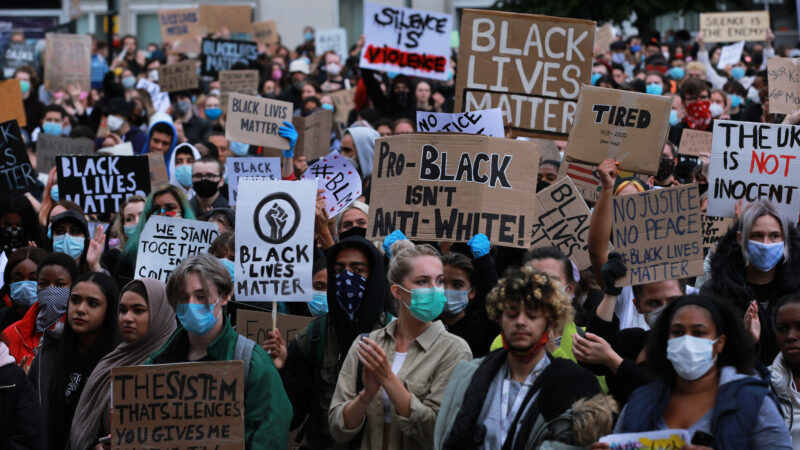People are rightly burning with anger and despair at racial injustice.

This past few months has been heart-breaking: unparalleled deaths across the country, with class, social and racial inequality intersecting. Then, the brutal murder of George Floyd unleashed a howl of rage and righteous indignation spreading from Minneapolis to Bristol.
It was a moment of sheer anger: a response to the reality that in 2020 the rhetoric of the racist right is now mainstream discourse in too many countries, including our own. It’s not just where you were born, or how much or how little wealth you were born into, that sadly matters, but all too often the colour of your skin still defines your opportunities and life chances. And that has been further exposed by the Covid-19 pandemic and the death of Belly Mujinga.
This is a deeply troubling situation for many black and diaspora communities, not least in my own constituency of Ilford South, where South Asian heritage communities form a majority of the local population.
Many have lost loved ones during this crisis, in some cases it would appear avoidably, while others are terrified to leave their homes for fear of contracting this deadly disease.
Many of these are keyworkers who have been at the frontline of this crisis, repeatedly putting their lives on the line for the rest of us, and these are very rational fears.
For example, for those of Bangladeshi ethnicity (which are a sizable proportion of my constituency in Ilford South), the risk of death has been double that of those of white British ethnicity, and for those of Indian, Pakistani, other Asian, Caribbean and other black communities the risk has been 10-50 per cent higher than white British people.
There are many factors behind the high number of deaths. One would appear to be a lack of support for those who have either spoken out, or for those who have been too scared to speak out.
Time and time again frontline workers were sent into the firing line, despite being ill-equipped or in vulnerable categories due to age or underlying health conditions.
This government has failed these workers. The Public Health England review into why Covid-19 has had a disproportionately high impact on BAME communities has fallen well short, offering little in the way of answers, or concrete steps for action.
Many experts share these concerns, with the British Medical Association describing it as a ‘missed opportunity’, while Dr Zubaida Haque, Interim Director of Race Equality at the Runnymede Trust, which was consulted by Public Health England for the report, said she was “flabbergasted that there was not a single recommendation” contained within the report, or indeed any plan of action on how to save lives. As a result, she concluded that it was “wholly inadequate”.
Dr Haque – a member of the Independent SAGE group – also said she was dismayed that just 11 of the review’s 89 pages focused on ethnicity, despite it supposedly being a review about racial inequalities and Covid-19.
The disproportionately high number of Covid-19 deaths within BAME communities has exposed underlying racial injustices that are embedded within our state structures, institutions and way of life.
Last week, Dawn Butler rightly raised this real issue during a debate in Parliament. The racist and disapproving response she received on social media was so high in volume that her name trended on Twitter. This was another grim reminder of the deeply entrenched mindset that refuses to accept the racial injustices within our society. For too long we have left this aspect of our collective mindset unaddressed, hoping that it will disappear.
We cannot wait for this government, led by a known racist, to make a difference. We must be the change we want to see: that means building community-led anti-racism campaigns, working alongside pre-existing organisations such as mutual aid groups. In addition to hands on support for vulnerable people, education and awareness initiatives can help to change the entrenched mindset that many people still have.
And we need to hold power to account, wherever that is – the town hall, the police station, self-appointed community leaders, and of course Parliament itself. Because power is never given – it is only ever taken.
Sam Tarry is the Labour MP for Ilford South.
To reach hundreds of thousands of new readers and to make the biggest impact we can in the next general election, we need to grow our donor base substantially.
That's why in 2024, we are seeking to generate 150 additional regular donors to support Left Foot Forward's work.
We still need another 124 people to donate to hit the target. You can help. Donate today.



